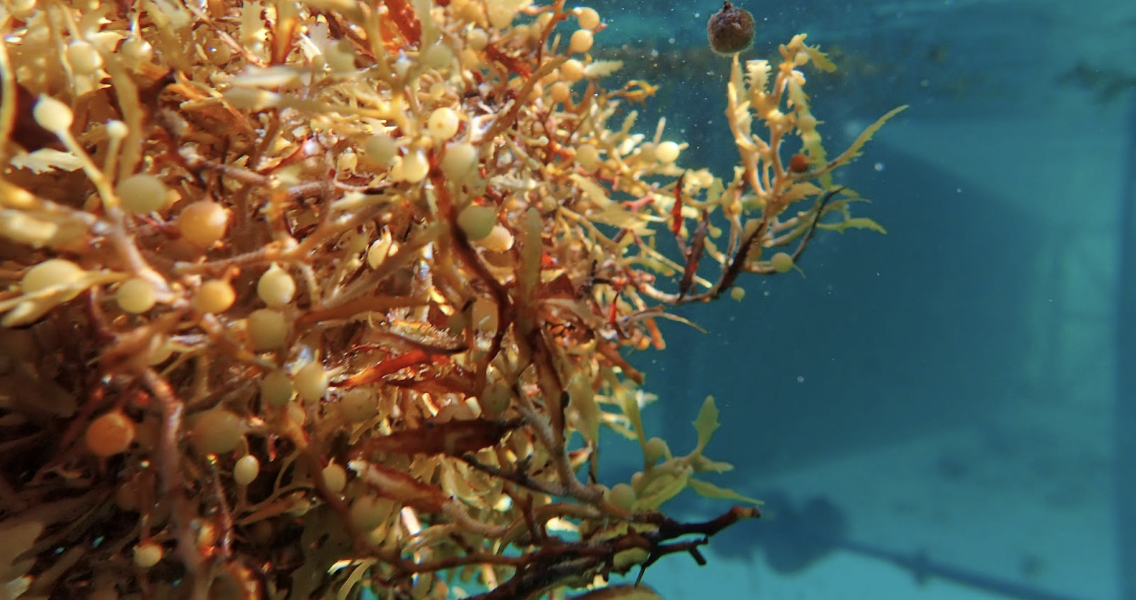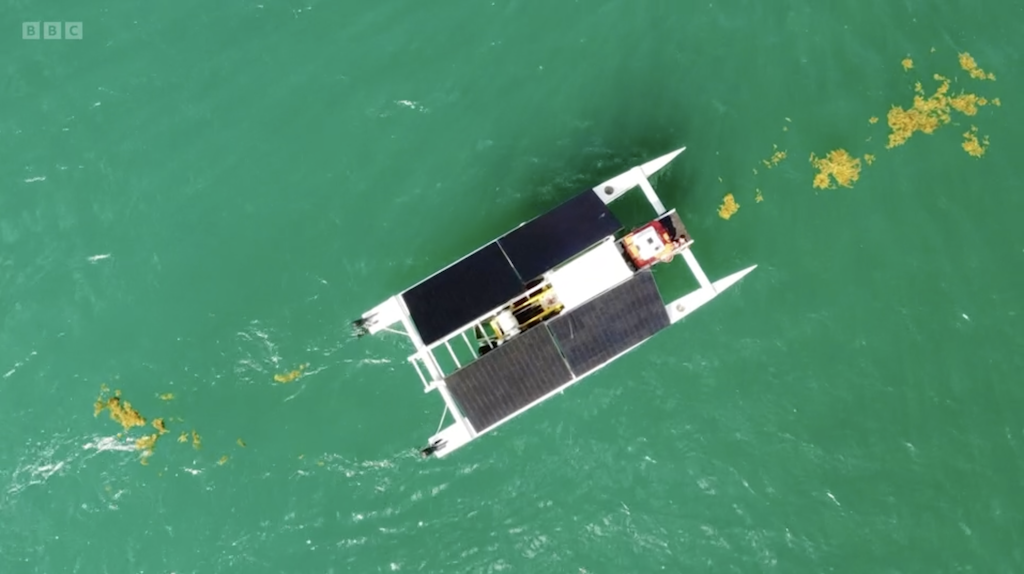Undercurrents: January 2024
Seaweed Generation's roundup of company news and perspective on all things climate.

Blythe Taylor, Chief of Staff
In recent days the University of Florida has released a report stating that last month saw record breaking levels of Sargassum for December in the interior central Atlantic. The increase in biomass from Nov - Dec was predicted, but the scale has taken scientists by surprise. It’s yet another indication of how our changing climate is impacting here and now.
The Sargassum season in the Mexican Caribbean tends to begin around April as water temperatures rise. But many of you will remember media coverage of the great seaweed ‘blob’ from early last year, highlighting that the season began early. Such high December levels unfortunately indicate that 2024 will be another major Sargassum year.
Our Chief Science Officer Professor Mike Allen has spent over 9 years trying to find a commercially viable, scalable, and sustainable use case for Sargassum - to no avail. The high levels of arsenic and heavy metals found within Sargassum mean fertilisers, feeds and fuels are not viable due to hugely energy intensive and costly processing. While we sincerely hope that such a solution can be found, at SeaGen we’re all too conscious of the impact Sargassum inundations are having year on year.
Last year’s ‘blob’ caught the attention of international media, but sadly this is mostly due to its predicted landfall on Florida’s beaches. The affluence and influence of the area ensured the associated issues of environmental and human health were highlighted.
In truth, the social, economic and ecological disruption caused by rotting accumulations of Sargassum is something Small Island States in the Caribbean have been forced to deal with for years. The cleanup cost in the Caribbean was $120M in 2018 alone, a devastating economic bill in addition to the loss of revenue from tourism.
Our work with the AlgaRay seeks to redress some of the outsized impacts climate change is having on these communities. By monitoring, intercepting and sinking the Sargassum before it hits shorelines we can help nations manage and avoid influxes of this ever increasing and problematic biomass. To learn more just take a look at SeaGen featured on BBC Click below!
Sargassum is just our starting point. Human activity and climate change are creating many problems across our oceans and waterways; plastics, sewage, invasive species, and microalgae blooms to name a few. Were looking at how the AlgaRay can help in the fight to restore and protect our blue planet. Watch this space!
Progress and Press

Sustainability, Scooters and Security

We welcomed BBC Click’s Romana Kreider and team to our workshop late last year. It was a beautiful Scottish sunny day and we road tested our latest submersible technology on the AlgaRay in Loch Lomond. We’re immensely proud of the team and the progress being made.